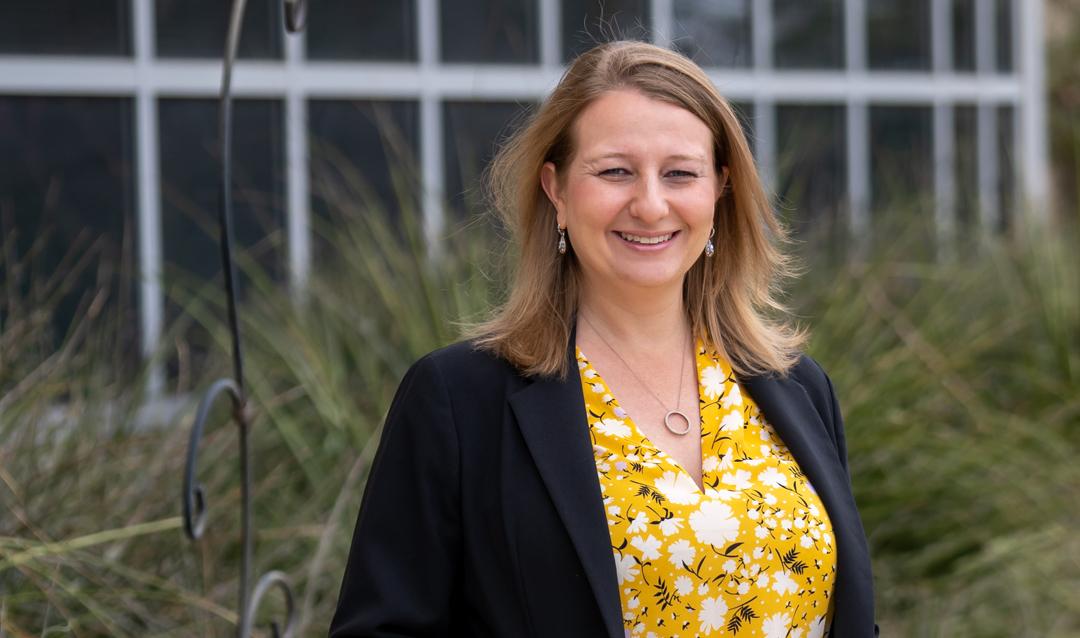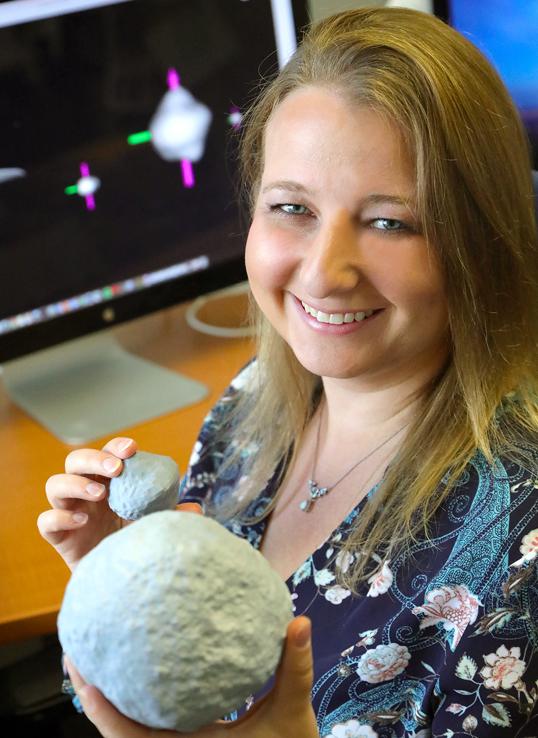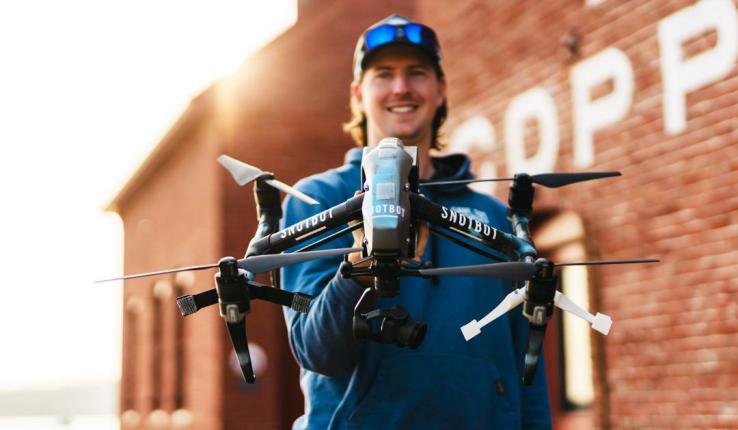“I'm just interested in that dynamic aspect of how the solar system came to be in its current form,” Becker says. “When you study asteroids and moons that are different distances from the Sun, they would have had different stockpiles of materials from which to build themselves up. By looking at the composition of each of these bodies in different places in the solar system, we really put those pieces together to understand how the solar system came to be.”
Since graduating from Lehigh with a major in astrophysics and minor in Latin American studies, the planetary scientist and group leader at the Southwest Research Institute in San Antonio, Texas, has been involved in NASA’s New Horizons mission, which flew past Pluto in 2015 and is still exploring the Kuiper Belt, and led several programs of her own for the Hubble Space Telescope.
In April, the European Space Agency launched JUICE (JUpiter ICy moons Explorer), which will pass several of Jupiter’s moons before eventually settling into orbit around Ganymede and Becker’s working with the ultraviolet spectrometer on that spacecraft. She also analyzes data from NASA’s James Webb Space telescope.
Becker says Lehigh gave her a foundation in physics and astronomy with her space-related work beginning at the university, where she completed multiple internships, including at Puerto Rico’s Arecibo Observatory, and another at the Cerro Tololo Inter-American Observatory in Chile, which was during the academic year and delayed her graduation. It was worth it, however, as Becker says it helped her get into graduate school at the University of Central Florida, where she earned a Ph.D. in physics with a planetary science track. At UCF, she began her first work with a NASA project using the Cassini spacecraft to study Saturn’s rings.
But she also believes Lehigh aided the development of her event organization and leadership skills, especially through the Residence Hall Association.
“As a scientist, as much as the science and the math are important, I do a lot of the team organization and team leadership side of things that really started developing through a lot of the opportunities that I had at Lehigh,” Becker says. “That and then again, as a graduate student as well. I attribute a lot of that…non-science, soft-skill and management experience, to helping me be as successful as I am right now in terms of being part of so many big missions.”
Becker is also involved in local outreach programs with kids and the community in San Antonio. She says Gary DeLeo, emeritus professor of physics, was one of her “first inspirations for my outreach education” work. While at Lehigh, Becker says DeLeo ran a program prepping fourth grade girls for meeting Sally Ride, the first American woman in space.
In 2017, Becker helped start Astronomy on Tap in San Antonio, a monthly event at bars where two scientists each give a short space-related presentation. She also assists in similar presentations for students in schools showing local kids the possibilities that exist with science and engineering jobs in their backyard.
“They don't realize that here in San Antonio we're the ones building and touching these spacecraft that then end up exploring space,” Becker says. “It’s really about making that connection that it's our neighbors that are doing that…and putting in the kids’ minds not only can you go to college, you could work on space afterwards and not even leave your hometown.”
Her work helped Becker earn the American Astronomical Society’s 2023 Carl Sagan Medal for Excellence in Public Communication in Planetary Science, the criteria for which includes the impact of communication activities, elevating science in the eyes of the public and ethics.
Read about more of Lehigh's community of Future Makers here.






